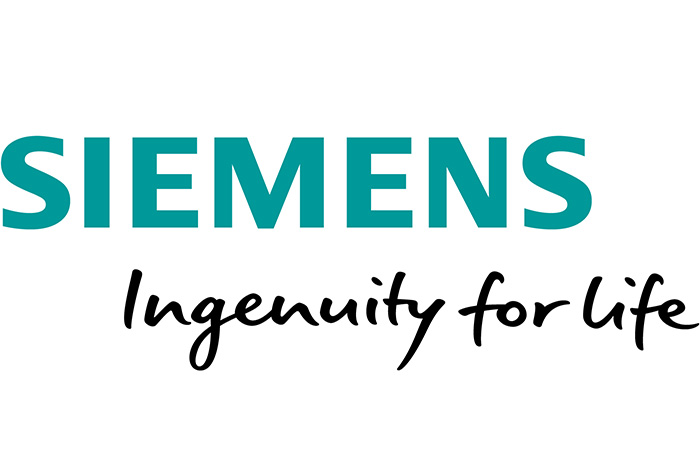
The world’s first digital groundbreaking at the Future Investment Initiative in Riyadh
The partnership between the National Industrial Clusters Development Program (NICDP) and Siemens was formalized at a signing ceremony in the presence of the Custodian of the Two Holy Mosques, King Salman, and Chancellor Dr. Angela Merkel in April 2017, and achieved a major milestone with the handover of digital industrial software by Siemens to the first recipient universities in Saudi Arabia. Siemens announced its EUR 100 million investment in industrial software earlier this year which aims to build up the most advanced local digital capabilities and prepare Saudi Arabian students and future leaders. Effat University and King Saud University were the proud recipients during the “digital groundbreaking ceremony” that took place during the Future Investment Initiative in Riyadh on October 24th 2017. The ceremony was attended by H.E. Khalid Al-Falih, Minister of Energy, Industry and Mineral Resources and Chairman of the NICDP, and Joe Kaeser, President and CEO of Siemens AG.
Joe Kaeser, President and CEO of Siemens AG, said “With its Vision 2030, the Kingdom of Saudi Arabia has one of the most advanced and ambitious strategic development programs in the world. Siemens is supporting this Vision in multiple ways. Providing digital education and ingenious software, Siemens elevates its commitment as a long-term strategic partner of the Kingdom.”
Siemens software investment in the fields of digitalization and automation will drive knowledge transfer and the localization of technology, and create high-skill jobs in line with Vision 2030.
Three software packages from the Siemens NX suite, within the Product Lifecycle Management (PLM) portfolio, were digitally transferred to the universities. The NX software is an integrated product design, engineering and manufacturing solution that creates products in the virtual world before they are physically produced – the so-called “digital twinning”. The packages include software for developing and testing products, and simulating production processes while significantly reducing the time-to-market. In addition, the research and development applications of the software with respect to 3D printing, for example, offers high value to the universities and students. With 3D printing capabilities, physical prototypes can be created within the shortest timeframes, whether it is a spacecraft or a car.
Dr. Haifa Jamalallail, President of Effat University, said “The NX11 software installed at Effat University, and the training of 20 faculty members early in August, has provided our University with valuable and transformational tools to enhance our research output and better learning aids. With the start of the semester in September, students started using the software in different classes in three out of our four colleges at Effat University. It will enable and support our bright young students of engineering, design, architecture and entrepreneurship not just in their studies and research at the university, but ultimately help propel Saudi Arabia forward to an even brighter future in line with Vision 2030.
Together with the King Abdulaziz City for Science and Technology (KACST), who played a key role in the installation and training of the software at the unversities, Effat University has become the lead trainer for the software and has already implemented a train-the-trainer concept. Practically, this means that the female students are being prepared to teach the digital software to their peers at other universities across the Kingdom, which includes 3D modeling for engineering and medical applications.
Dana Juffali, who moderated the ceremony, said “Siemens is responding to the imperative for education and training among the Kingdom’s youth. As a graduate of the Siemens education system, I can only urge my fellow youth to grab the opportunities whether in vocational education, internships abroad or by accessing digital software. This truly is about preparing us for a brighter future under Vision 2030."
Prof. Dr. Alsalman, Vice Rector of King Saud University, expressed his great delight to receive the software and said, “King Saud University wishes to thank Siemens for its contribution to education and training in Saudi Arabia. The handover of the software is another win for our students, university and country.”
Arja Talakar, CEO of Siemens Saudi Arabia, concluded, “As a father of young children, I was touched by the visible enthusiasm and pride of the students who received the software on behalf of their universities. One student referred to how she would use the software to create engineering models during her term of study and we are very proud to be part of this initiative.”
Siemens, together with its long-term partner and shareholder, Juffali Brothers, will continue with this commitment.
Siemens digital software applications are developed on earth and have been tested and proven in outer space. The company’s partnership with the US space agency, NASA, created the Curiosity, a 900-kilogram vehicle that travelled 567 million kilometers to Mars at a speed of 76,000 kilometer per hour. This was the most technologically complex project in NASA’s history since hundreds of complex steps were followed to avoid the vehicle from crashing into the red planet. The multitude of virtual tests with Siemens digital software, which ranged from desgning to thermal analyses and the simulation of conditions on the red plant, led to the flawless physical landing of the Curiosity on Mars.
Companies like Space Exploration Technologies (SpaceX) are continuously optmizing the design of their rockets to significantly reduce launch costs, and make space tourism a reality for ordinary people. SpaceX deploys Siemens digital software to easily access their vast amounts of development data, which is capable of updating, organizing and integrating data much faster.
In addition, Maserati uses Siemens digital software to simulate and test its vehicles along each step in the production chain, which reduces the analysis and development time by 30%. A change in the Formula 1 racing regulations prompted the Infiniti Red Bull Racing team to deploy Siemens software which accelerated the virtual design and testing of their new components in the virtual domain so that the team could initiate physical production in record time.
























